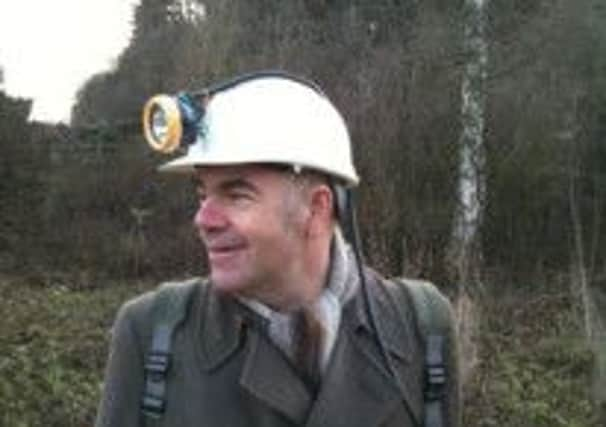Putting the Midlands back on the map


But it was when his young son was doing a school project about himself that the issue of his own identity became an issue.
Robert’s wife is French and that conjures up a set of values and traits that people automatically associate with French people. The same was true for other parents from other parts of the world and indeed, country.
Advertisement
Advertisement
It was then that Robert (46) realised that nobody seems to know what it means to be ‘a Midlander’ - someone from the swathe of land that separates the much spoken about North and South of Great Britain.
This was something that needed putting right, he decided, and so arts journalist Robert embarked on a tour of the Midlands in a bid to rediscover its identity - and has written a book about his experience.
The end product is ‘Bang in the Middle: A Journey Through The Midlands - The Most Underrated Place on Earth’ which was released last week.
“I thought I would try and construct a history of what the Midlands stands for,” he said.
Advertisement
Advertisement
“I definitely had the idea I was a Midlander and thought Mansfield was a Midlands town.
“So I went on this tour around the Midlands, starting in Mansfield, trying to show that everything ever started here in the Midlands.”
Robert said that though he was sceptical at first about the cultural importance of the Midlands, his trip revealed exactly how influential the region has been in the UK’s literary, scientific, industrial and political development.
The reason that these achievements are overlooked in the national consciousness is largely, he said, down to the fixation with the North-South divide.
But the Midlands does not fit in either of these camps.
Advertisement
Advertisement
“Because we tend to think about things in terms of the North-South divide, the Midlands generally is quite interesting, by not being either and complicating the picture quite a lot,” he said.
“It’s a good thing not to be one thing or the other - that’s what happened with the Miners’ Strike - it was not one thing or the other.”
Robert’s book is a ‘rallying cry’ for Midlanders to shout out about their region and make people take more notice of it.
It also aims to give more meaning to the term ‘Midlander’, a word that once had definite connotations which are now all but forgotten.
Advertisement
Advertisement
“It’s really only in the past 50 or 60 years that the North has just grown so much in terms of its identity that we have forgotten that the Midlands is a term more than just used in weather reports,” he explained.
“Before then the image of the Midlands was much stronger.”
‘Midland traditions’ used to be commonly spoken of and the characteristics of people from the region were those that were widely recognised as English traits - things such as self-deprecating humour, appealing modesty and an independence of spirit, said Robert.
“A lot of the things we think of as being really English are often defined, I think, as being Midlands rather than North or South,” he added.
The crisis of identity for the Midlands starts with it being almost completely overlooked in the road signs on the M1.
Advertisement
Advertisement
It is exacerbated by not having its own soap opera - think Coronation Street v Eastenders - and not having a hugely successful football team - thinks Manchester United, City and Liverpool v Chelsea and Arsenal.
There is also the fact that Midlands often seems to equate to Birmingham and that city is unfairly portrayed negatively at almost every mention.
Robert now hopes his book will put the whole of the Midlands back on the map and make people finally realise what it is to be a Midlander.
“The Midlands identity needs to be revived and we need to give the word some vividness,” he concluded.